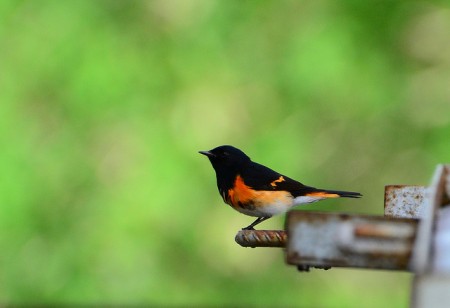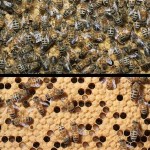June 11, 2015 – When we think of climate change impacts we tend to see it in terms of humanity and not the animal kingdom so much. We here in Canada are more aware of what polar warming is doing to Polar Bears, and research on a number of Arctic species indicates they are under threat from diseases that are migrating northward infecting animals with no natural resistance. Muskoxen are among these threatened species.
But by far the biggest impact of climate change will be on migratory species, and birds in particular. In the journal, Global Change Biology, researchers from Yale University and the National Museum of Natural History in Paris, France, look specifically at bird populations, breeding ranges, migratory patterns and the changing climate. In their paper, entitled, “The effect of range changes on the functional turnover, structure and diversity of bird assemblages under future climate scenarios,” they state that “species fulfill critical ecological functions in a local ecosystem that may be altered substantially as climate change is causing them to shift in and out of their current location.”
Think about the impact on the migratory birds you are familiar with. In our area of Toronto each spring is heralded by the return of the Robin, Red-Wing Blackbird, Cedar Waxwings, Goldfinch, Baltimore Oriole, Warblers, Grackles and other Blackbirds, and Hummingbirds just to a name a few. Most of these are short-distance migrators. But there are many species that travel much further distances in their migratory patterns, from Southern Hemisphere wintering locations to the sub-Arctic north where they breed a new generation. For them Toronto is only a place to pass through.
So what happens to a bird that is used to conditions and food sources that suddenly move elsewhere? Does it recognize the change and adjust? The scientists believe many bird species when faced with climate change will suffer “severe consequences.” Species will often find their breeding range compromised and may go extinct. High-latitude species may be very vulnerable as sub-Arctic conditions creep poleward making migratory destinations no longer suitable for nesting. The birds won’t be able to figure out what’s happened and fly further north. They’ll just die off.
This paper does not stand alone in looking at how climate change is impacting bird populations. Other studies are showing that birds that nest and breed here in Canada are laying their eggs 6.6 days earlier per decade over the last 30 years. Migration studies of 96 species covering 63 years show that 27 different species are arriving earlier in the spring and are delaying autumn departures. In some cases birds in Europe are not migrating at all. Warbler species over the past 24 years have shifted their range northward on average more than 100 kilometers (65 miles). None have shifted southward. And birds never seen in Canada are now appearing for the first time, Northern Mockingbird, Red-bellied Woodpecker and others.
Of course as in all cases evolution will produce winners and losers. Some birds will find conditions suitable to expand their breeding range while others will become extinct. As insectivores like Warblers adjust their range it will be interesting to see what happens to insect populations that are their food source. Will they too migrate or will the Warblers based on warming temperatures actually find themselves in new areas where there normal food doesn’t exist? For northern birds that thrive on sea ice, a warming Arctic will be a death sentence. As it will be for many of the land animals of the Arctic who in trying to maintain their normal breeding range will find that nothing is normal anymore.


















